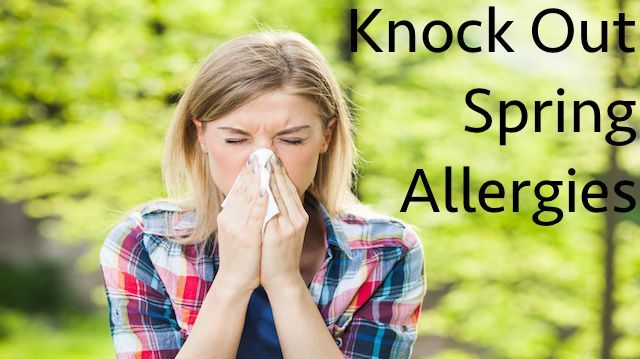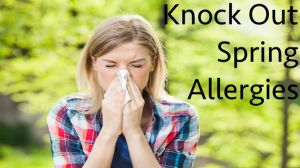
While medications are readily available and generally affordable to fight allergies, there is a big price to pay for their convenience.
Synthetic medications come with a number of side effects that can negatively affect your health – some of which can be as bad or worse than the allergy symptoms themselves. Among the long list of potential side effects are headache, loss of appetite, drowsiness, irregular or fast heartbeat, increased blood pressure, insomnia, anxiety, irritability and even depression.
In light of this, it only makes sense to consider natural remedies instead.
Raw, local honey
Locally produced, raw honey is known to alleviate allergy symptoms. As the bees become covered in pollen spores when flying from one flower to the next, the spores are transferred to the honey. Eating just one spoonful of honey a day is believed to help build immunity through gradual exposure. Getting local honey is best since the pollens that are most common in your area will be present in local honey, helping you build up the immunity to what you encounter in your environment.
A recent study of patients who were diagnosed with birch pollen allergy found that taking the honey during birch pollen season was able to reduce 60 percent of their allergy symptoms and decrease days with severe symptoms by 70 percent. The soothing and expectorant qualities of honey make it a great natural treatment for easing a cough or soothing a sore throat as well.
Chamomile
Chamomile offers potent anti-inflammatory properties that can provide relief to dry, itchy eyes. Place a cold, wet chamomile tea bag over the eyes for 3 to 5 minutes for best effect.
Garlic
Clinical studies have discovered that a natural compound found in garlic known as quercetin, mimics the antihistamine effect of certain drugs. It was shown to prevent immune cells from releasing histamines which are the chemicals that cause an allergic reaction. Researchers believe that quercetin may help reduce allergy symptoms like runny nose, watery eyes, hives, and swelling of the face and lips.
If you’re worried about garlic breath, chewing on a piece of fresh parsley will help to counteract the odor – and as an added bonus, parsley is one of the healthiest greens on the planet.
Cayenne pepper
Cayenne pepper also contains quercetin, in addition to offering powerful anti-inflammatory properties that can prevent throat and nasal irritation. The natural heat it produces in the body is also known to comfort allergy irritations and ease the pain of a sore throat.
Thyme is known to naturally relieve congestion that frequently occurs during the onset of spring allergies. It also offers potent antimicrobial properties to help fight infection caused by phlegm. There are even some medications that include thyme to boost their decongestion effectiveness. To derive its benefits, sip a tea made from fresh, organic thyme twice a day.
Exercise
Physical activity can naturally soothe allergy symptoms. When you have allergies, the blood vessels in the nose swell which causes congestion, but during exercise the body directs blood flow to the parts of the body that need it most. As the blood vessels in the nose aren’t a top priority, they constrict, and as a result, congestion is reduced. The effect generally occurs within five minutes of starting an activity and can last for several hours afterward.
-The Alternative Daily
Sources:
http://www.nclnet.org/health/139-allergies/379-spring-is-in-the-air-achoo
http://blog.naturalpremier.com/11-allergy-medication-side-effects-that-are-destroying-your-health
http://www.care2.com/greenliving/herbal-remedies-for-spring-allergies.html
http://www.fitnessmagazine.com/health/conditions/allergies/seasonal-allergy-remedies


